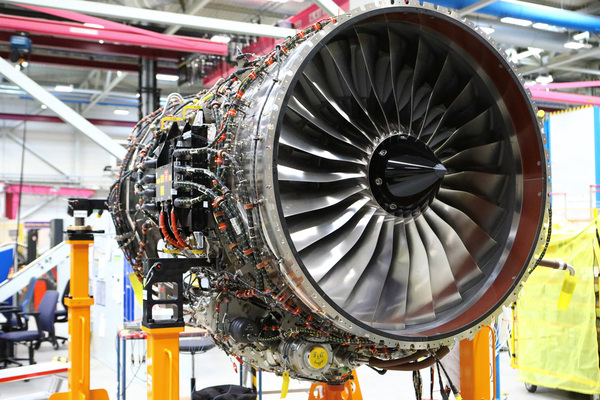

The FTSE 100 and European stocks were lower on Tuesday, continuing to trade in a subdued manner ahead of the release of the week’s key inflation data.
The FTSE 100 (^FTSE) slipped 0.3% to 7,437 points at the open, while the CAC 40 (^FCHI) in Paris lost 0.3% to 7,241 points. In Germany, the DAX (^GDAXI) retreated 0.1% to 15,944. The Stoxx 600 (STOXX) lost 0.4% at the open.
Data on EU inflation is due on Thursday, with core inflation forecast at 3.9%, the lowest since the middle of last year.
Read more: Shop prices may rise again, say retailers as inflation threat looms
Across the pond, US stocks closed lower on Monday as investors waited for updates on inflation and how American consumers are feeling about the economy.
The Dow Jones (^DJI) slipped 0.1% to close at 35,333 points. The S&P 500 (^GSPC) lost 0.2% to finish at 4,550 points and the tech-heavy NASDAQ (^IXIC), which traded in positive territory for most of the day, slipped in late trading, closing roughly 0.1% lower.
S&P 500 futures (ES=F), Dow futures (YM=F) and Nasdaq futures (NQ=F) were all in the red as trade began in Europe.
The Federal Reserve’s favoured measure of inflation — personal consumption expenditures — is due on Thursday.
In Asia, the Hang Seng (^HSI) in Hong Kong tumbled 0.9% to 17,366 while the Shanghai Composite (000001.SS) rose 0.2% to 3,038 points. Tokyo’s Nikkei 225 (^N225) also finished in the red, slipping 0.1% to 33,408 points.
Read more: UK houses selling at a £25k discount in London and £18k lower in rest of of the country
The Hang Seng was dragged lower by a 5.6% slump in shares of artificial intelligence software company Sensetime (80020.HK) following claims from short-seller Grizzly Research that the company was inflating its revenue figures.
Sensetime said the allegations were “without merit” and showed a lack of understanding of the company’s business and its financial reporting.
Meanwhile, oil prices rose slightly amid expectations Opec+ would extend output cuts into next year.
West Texas Intermediate (CL=F) rose 0.3% and was trading at $75 per barrel. Brent (BZ=F) crude climbed 0.2% to $80 per barrel.
-
Bank of England (BoE) deputy governor Dave Ramsden has warned that interest rates will need to remain high for some time to defeat price increases as the challenges facing UK inflation are “becoming much more home grown”
Dave Ramsden said prices could keep rising at a fast pace as a result of the services sector, where inflation has been “much stickier”, Reuters reported.
Speaking at a central bank conference in Hong Kong, he said: “We think that monetary policy is likely to need to be restrictive for an extended period of time,” he said. “And we’ve communicated that it will need to be sufficiently restrictive for sufficiently long to get inflation back to the 2% target.”
-
UK property hunters are paying an average of £18,000 less than asking price, according to new data, as mortgage rates hit demand and an increase in supply bolsters negotiating power for house hunters.
This rate of discount to asking price is now at a five-year high, hitting 5.5% for sales in the first half of November compared to a 3.4% average discount for the first six months of 2023, according to Zoopla’s monthly House Price Index.
This is being keenly felt in the south of England where the average discount to the asking price for sales is 6.1% in London and the South East – equating to a total reduction of £25,000 off the asking price, the monitor found.
-
Shop prices have eased in November but the retail sector warns that shops might have to increase prices as the Bank of England warns that getting inflation down will be “hard work”.
Shop prices rose 4.3% in November, down from October’s 5.2% and the lowest inflation since last June, according to the British Retail Consortium (BRC)-NielsenIQ Shop Price Index.
Food inflation overall slowed to 7.8% from October’s 8.8%, the seventh consecutive drop and its lowest rate since last July due to lower domestic energy prices cutting costs, particularly for dairy products, with fresh food inflation slowing to 6.7% from the previous month’s 8.3%.
The slowdown in price increases might, however, be temporary as BoE governor warned of a tough battle ahead to bring inflation back to 2%.
-

Photo: Reuters
:
Rolls-Royce (RR.L) shares are 5.5% higher after the company’s boss Tufan Erginbilgic revealed a medium-term target to deliver operating profits between £2.5bn and £2.8bn.
It is also aiming for free cash flow of £2.8bn to £3.1bn, with a return on capital between 16% and 18%. “These targets are based upon our expectations for a 2027 timeframe. We expect a progressive, but not necessarily linear, improvement year-on-year, and if we can accelerate the achievement of our ambitions we will,” Rolls-Royce said.
Civil aerospace was notable among its divisional targets, which was expected to make a leap from a 2.5% operating margin in 2022 to a range of 15% to 17%.
-
Budget airline easyJet (EZJ.L) has revealed it swung to an annual profit after a record summer, but cautioned over a hit from the conflict in Gaza.
The group reported pre-tax profits of £432m for the year to September 30, against losses of £208m the previous year. The company, which hasn’t paid a dividend to shareholders in three years, declared a final dividend of 4.5p per share, amounting to £34m
Watch: Wall St ends lower amid Cyber Monday madness
Download the Yahoo Finance app, available for Apple and Android.






